- Date 2025-03-26
- Hit 51
Intro ducing the Global Campus in IFEZ
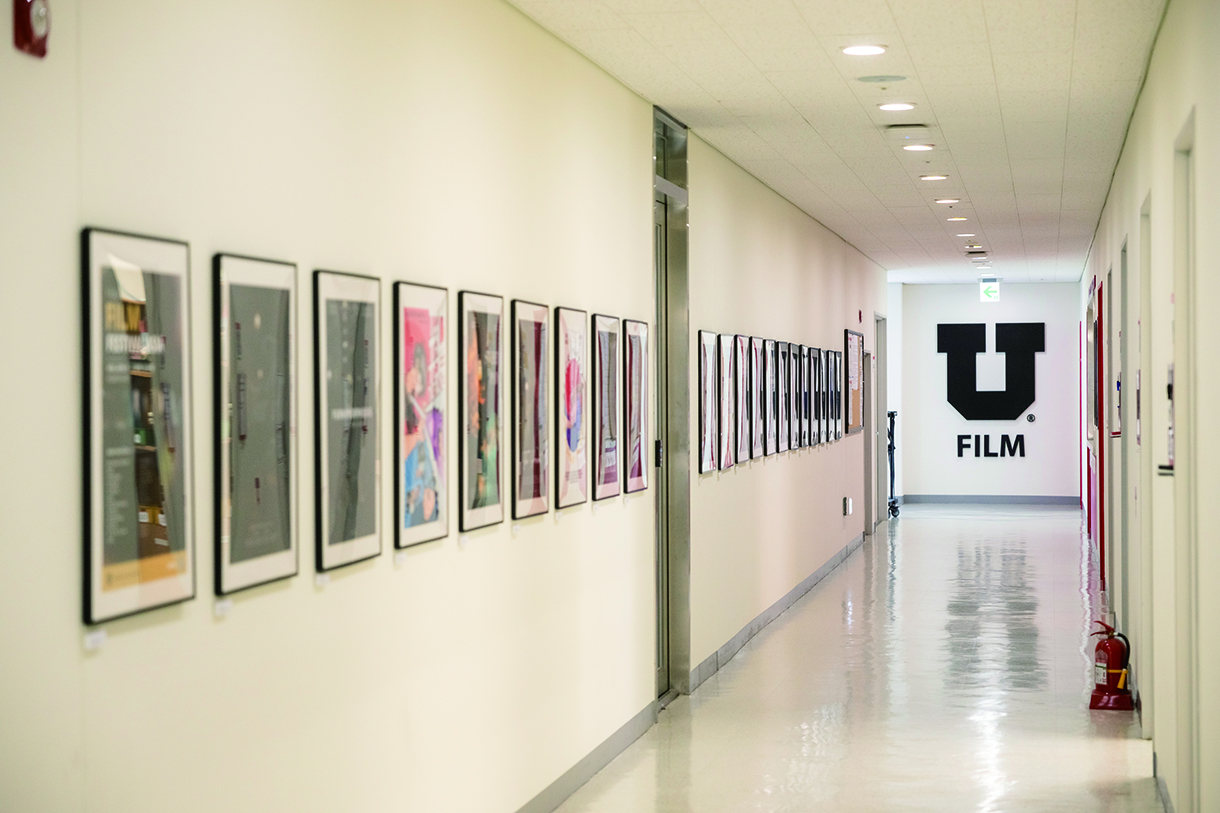
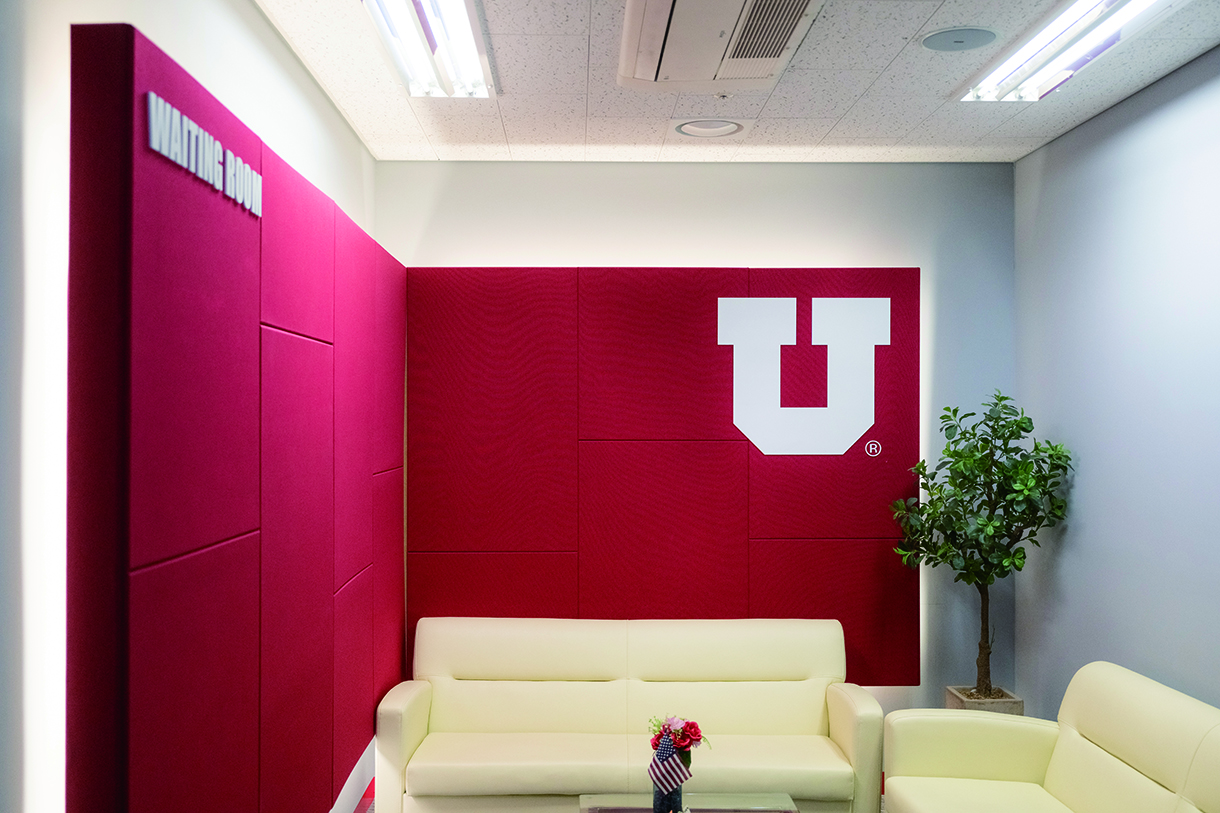

Introducing the Global Campus in IFEZ
To earn their degrees, students at the University of Utah Asia Campus study for three years in Korea and one year on the main campus in Salt Lake City, Utah. Shin Yong-suk, special advisor for international cooperation within Incheon Free Economic Zone (IFEZ), met with Gregory C. Hill, the representative of the UAC, to discuss the university’s current status and future outlook as it celebrates its 11th anniversary
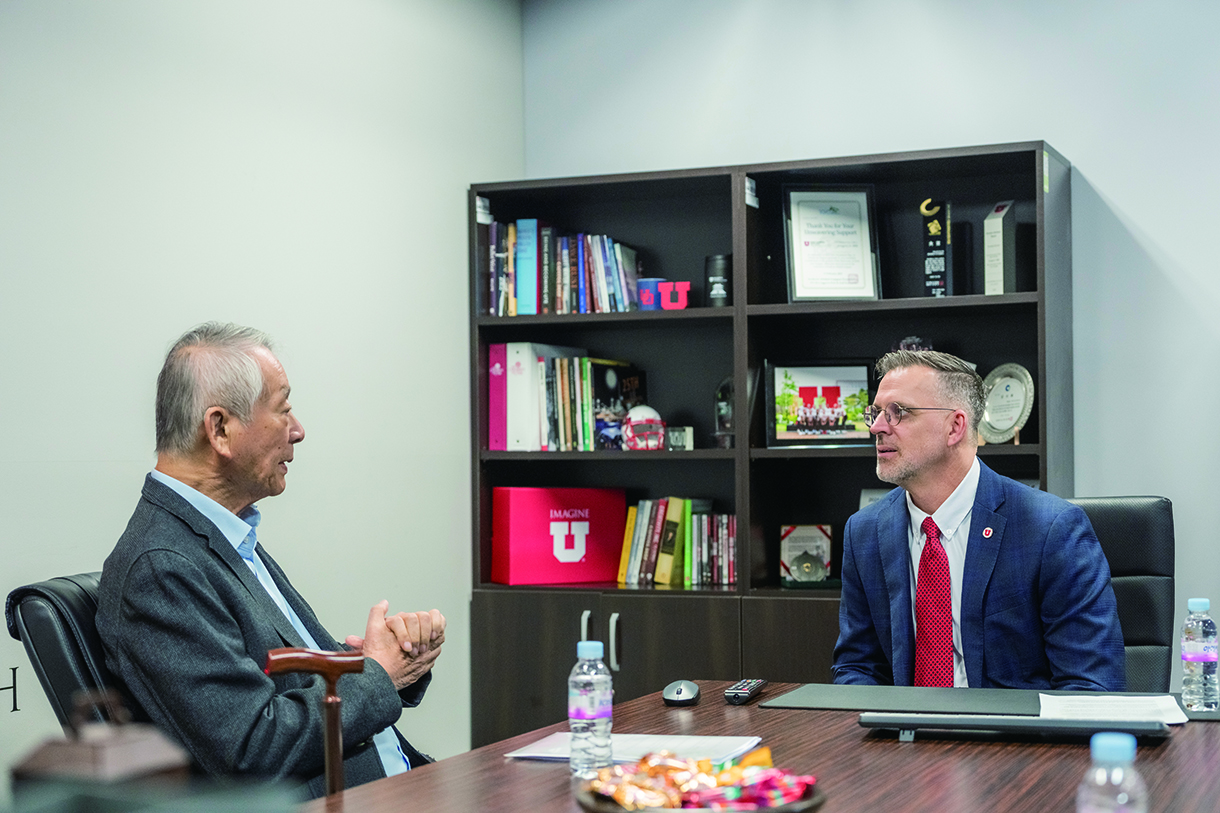
SPECIAL INTERVIEW
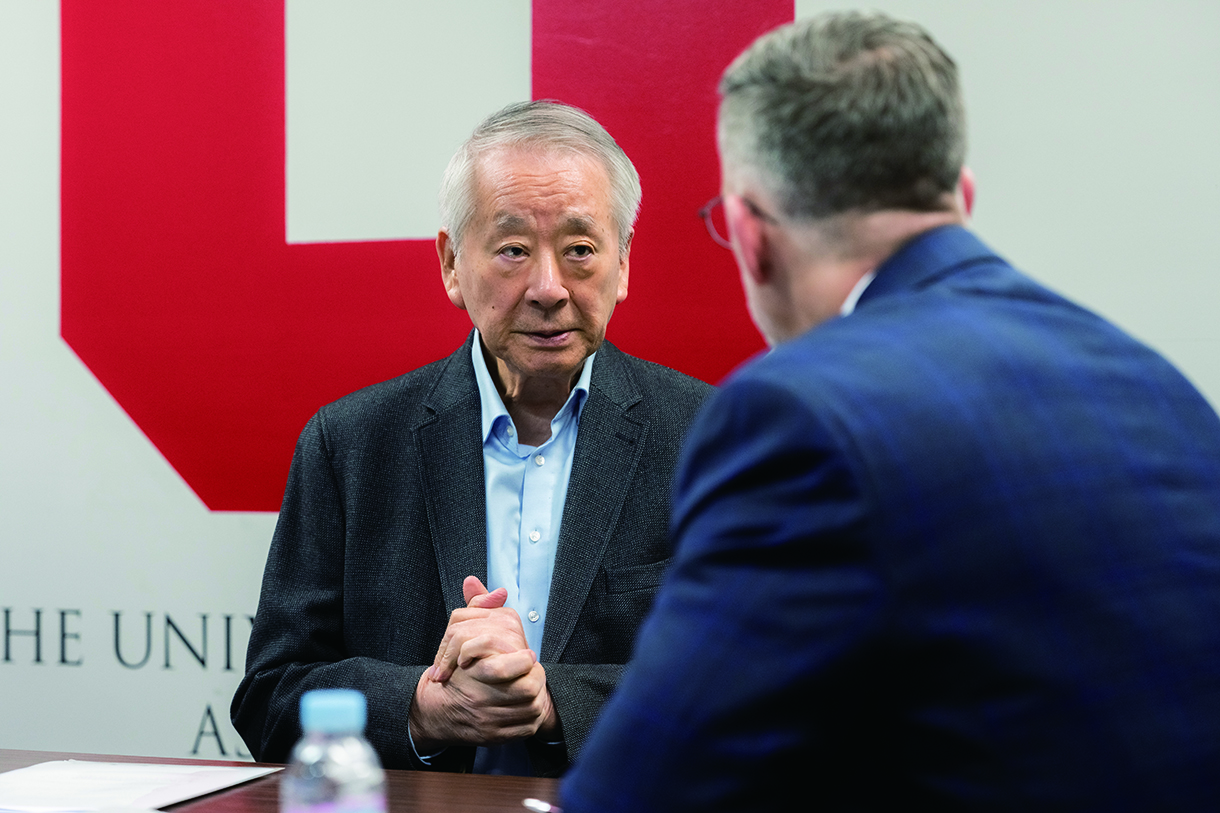
Shin Yong-suk
special advisor for international cooperation within Incheon Free
Economic Zone (IFEZ)
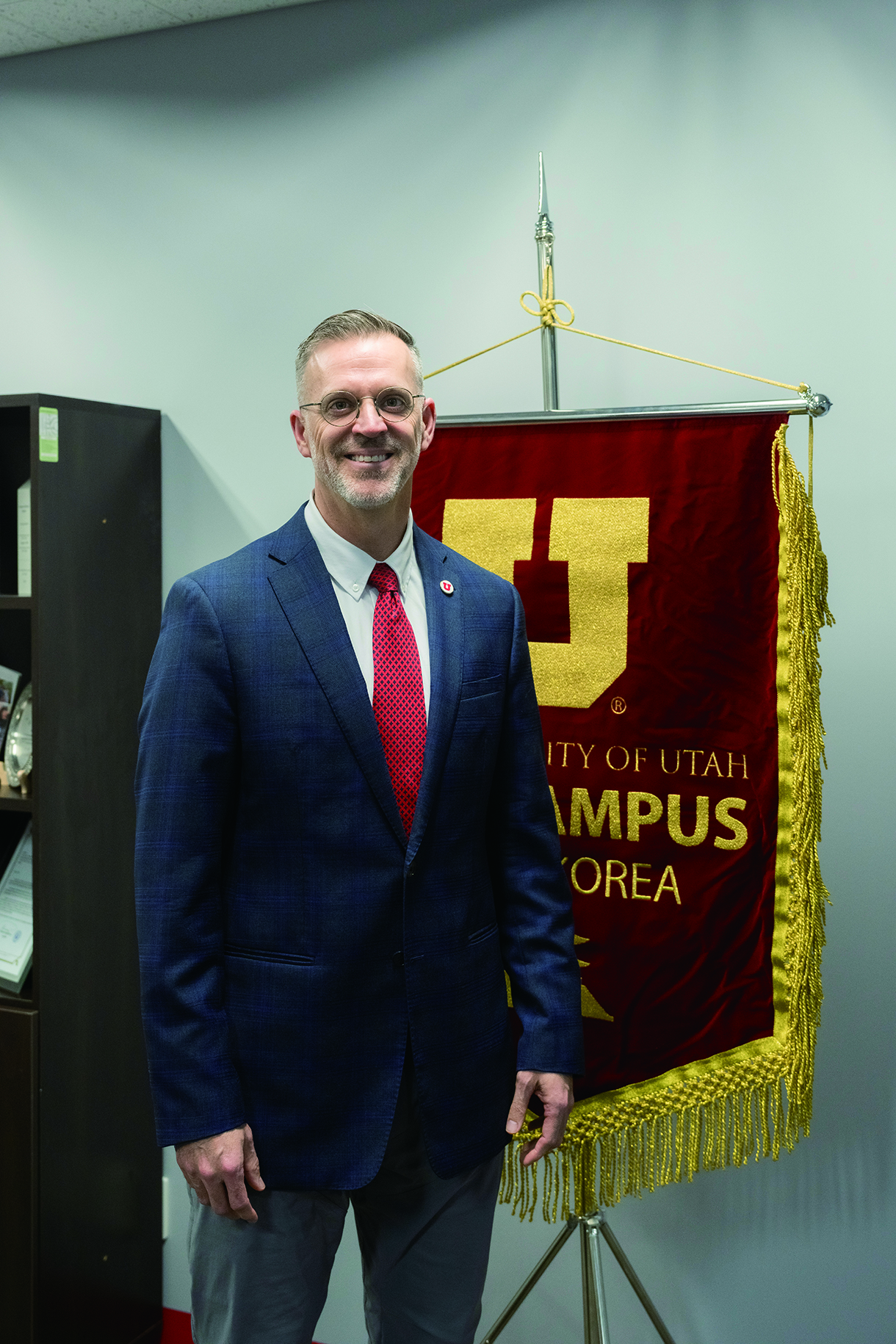
Gregory C. Hill
the representative of the UAC
Shin Yong-suk What motivated the University of Utah to establish its Asia Campus in Songdo, Incheon?
Gregory C. Hill The University of Utah recognizes the importance of global education and aims to advance research and academics by collaborating with students worldwide. Incheon, as the hub of the Incheon Free Economic Zone (IFEZ), offers an optimal environment for international education and research collaboration. The establishment of the Incheon Global Campus (IGC) within IFEZ aims to attract top universities from around the world, creating a global academic hub. The University of Utah joined this vision and established its Asia Campus.
Additionally, the university has a longstanding relationship with the renowned Korean chemist Dr. Lee Tae-kyu. His academic achievements and contributions to U.S.-Korea educational exchanges have played a significant role in strengthening the ties between the University of Utah and Korea. This historical background, combined with the university’s goal of expanding global education, led to the establishment of the Asia Campus in Incheon.
Shin Yong-suk Who was Professor Lee Tae-kyu?
그레고리·힐 Dr. Lee Tae-kyu (1902–1992) was appointed as a professor at the University of Utah in 1948. In 1955, he co-published “Non-Newtonian Flow Theory” with Professor Henry Eyring, which led to his nomination as a Nobel Prize committee member in 1965 and later as a Nobel Prize candidate in 1969, enhancing Korea’s international standing. Before Korea’s liberation, he trained students at the University of Tokyo, and following its liberation, he taught at Seoul National University before joining the University of Utah in 1948. As a world-renowned chemist specializing in reaction rate theory and liquid theory, he gained significant attention in the global academic community. Later in life, he returned to Korea as an honorary professor at KAIST, mentoring 12 Ph.D. and 24 master’s degree students and laying the foundation for Korean chemistry.
Shin Yong-suk Among the nine academic programs at the Asia Campus, the Game Development program stands out. Could you elaborate on what makes it so renowned?
Gregory C. Hill Our Game Development program focuses on designing and developing a wide range of games, from video games to e-sports. Students study various fields, including computer engineering, design, video game development, and 3D animation. The University of Utah’s Game Development program consistently ranks among the top three in the United States and boasts a high employment rate. Notably, the Princeton Review ranked our undergraduate program as the No. 1 public school and our graduate program as No. 2 worldwide in 2020 for game-related studies. Our graduates secure positions at leading IT, gaming, and media companies, including Google, Adobe, Apple, Nintendo, Blizzard Entertainment, Epic Games, Warner Bros., and DreamWorks.
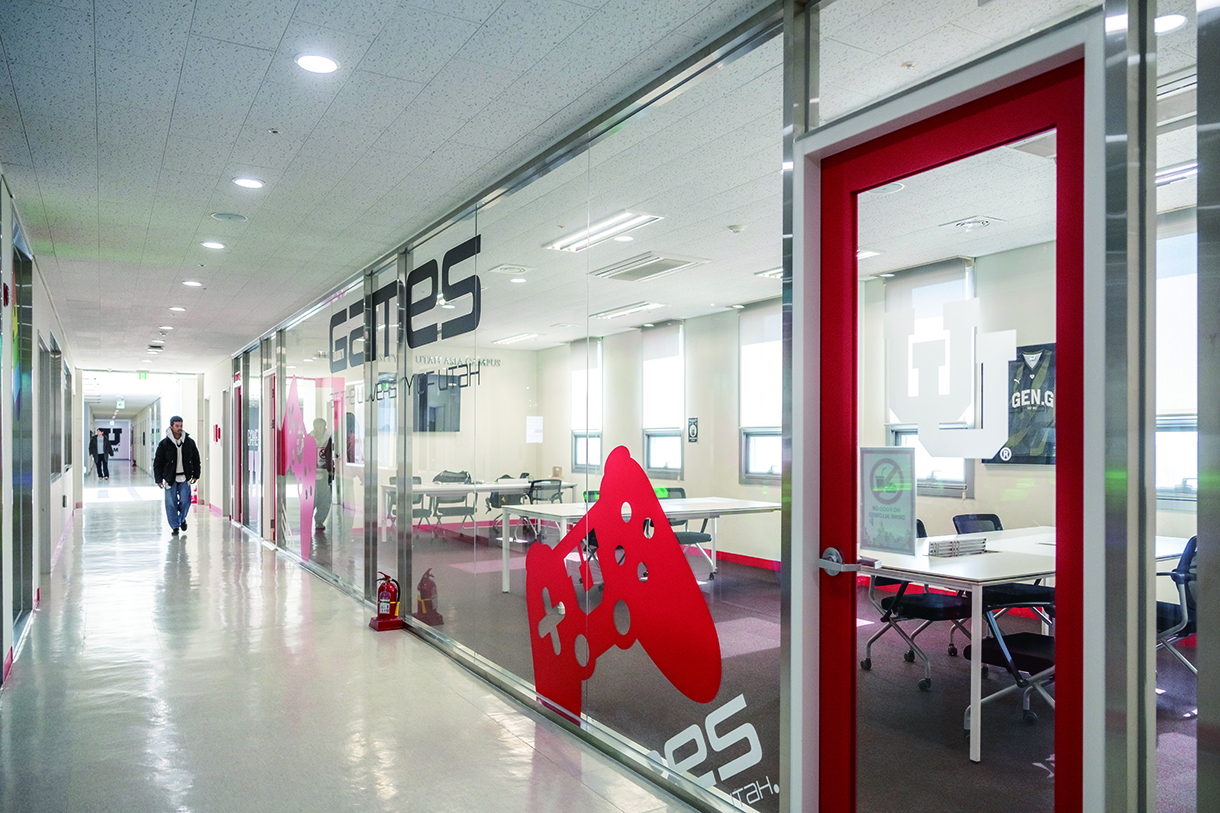
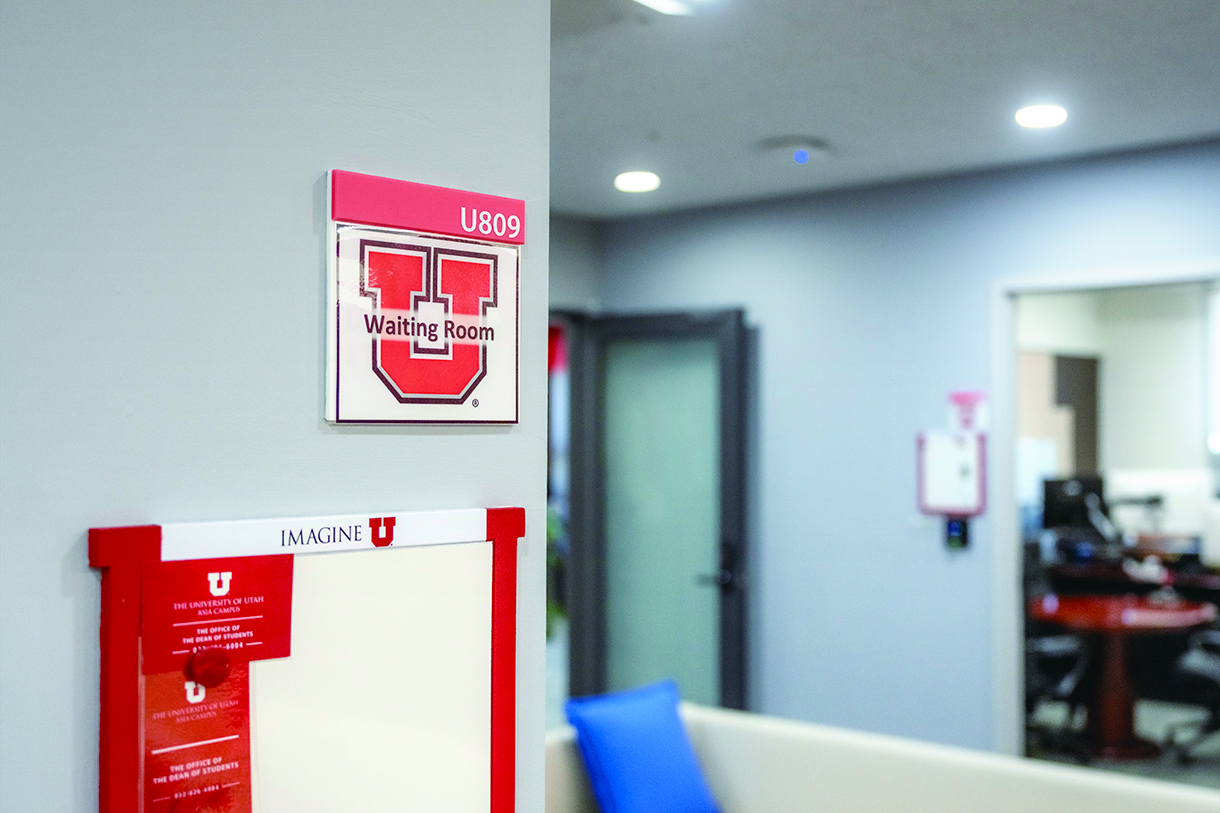
Shin Yong-suk Which academic programs are most popular among both Korean and international students?
Gregory C. Hill All programs have their unique appeal, but recently, the Film & Media Arts program has gained significant popularity due to the increasing global interest in Korean movies. The program currently has about 100 students, and they engage in both theoretical and practical learning. Graduates often pursue careers as independent filmmakers or gain experience in studios across Korea and other countries, contributing to the globalization and development of the Korean film industry.
Shin Yong-suk What are the admission criteria for the University of Utah Asia Campus?
Gregory C. Hill he Asia Campus follows the same admission standards as the main campus in Salt Lake City. In addition to English proficiency and academic performance, we evaluate leadership potential, extracurricular activities, and critical thinking skills. Our goal is to cultivate global leaders, so we prioritize applicants with a strong sense of purpose, life experiences, leadership qualities, and a clear personal vision rather than focusing solely on grades. Korean students, in particular, demonstrate high academic achievement, along with diverse experiences and aspirations, making them strong candidates. These qualities play an important role in the selection process.
Shin Yong-suk According to recent statistics, the proportion of international freshmen reached 40% last year. Do you have specific plans to further increase this percentage?
Gregory C. Hill International students choose our Asia Campus because they are interested in Korea and its culture. As a global education hub in Korea, our campus attracts students from diverse backgrounds, including the U.S., Mongolia, Canada, Japan, and the Philippines. The proportion of international students has been steadily increasing, reaching 40% last year. Moving forward, we plan to expand our recruitment efforts to attract students from an even wider range of countries. Additionally, we aim to strengthen partnerships with local businesses and industries to enhance students’ educational experiences and career opportunities.
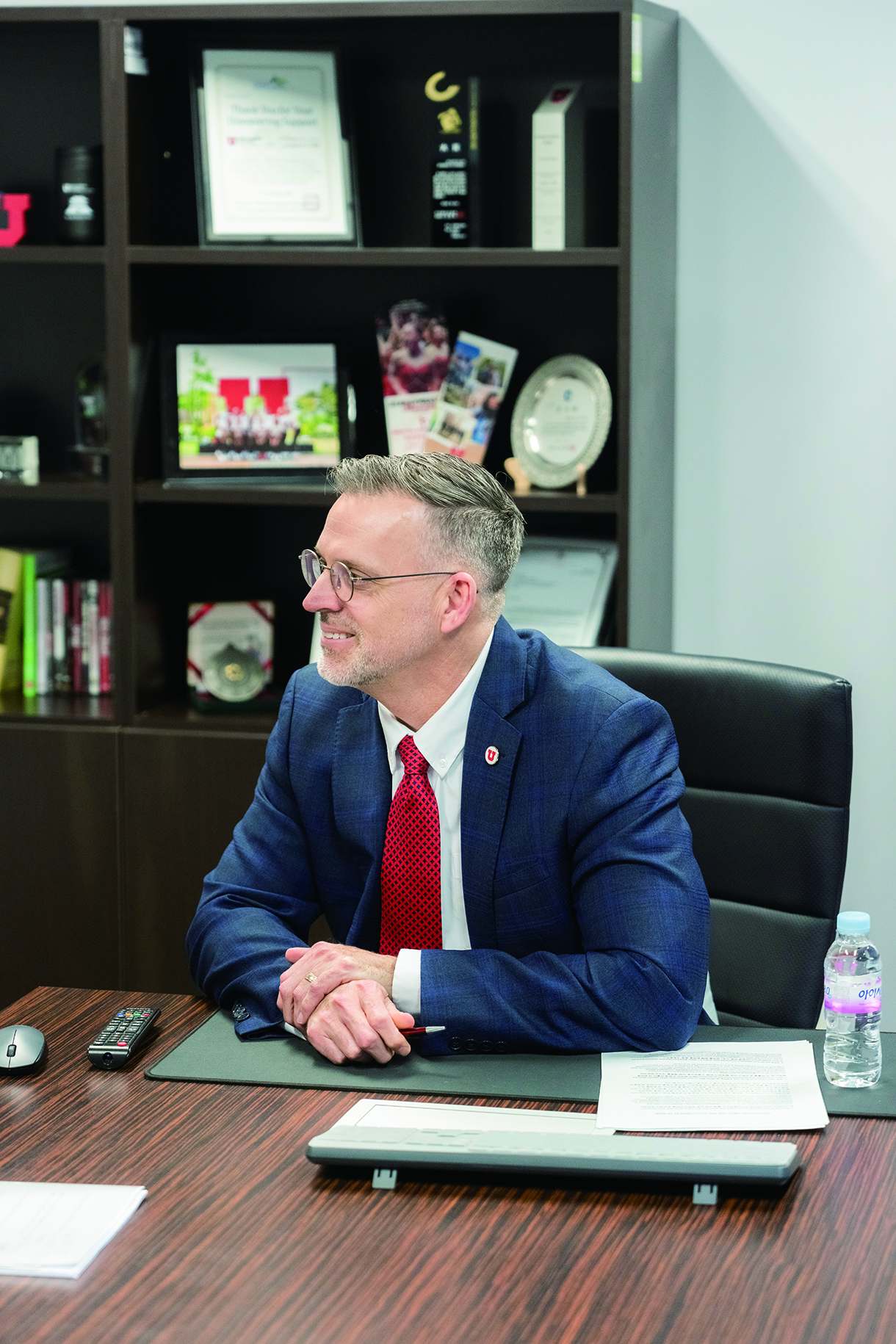
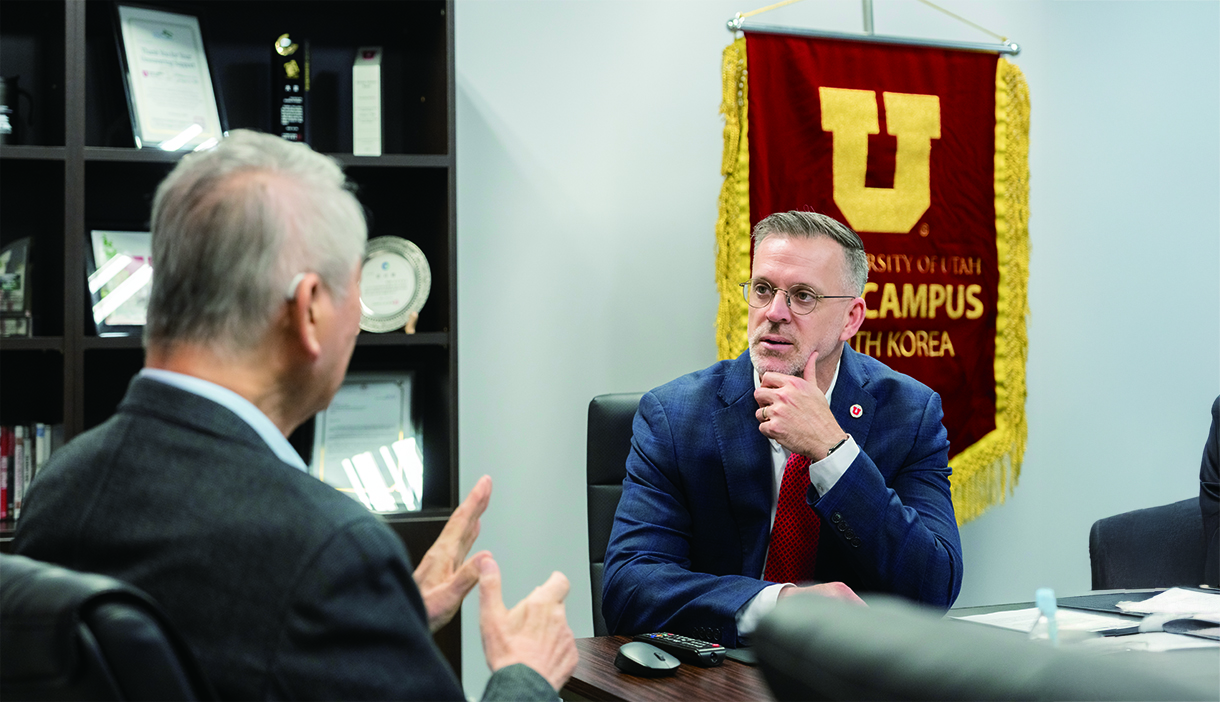
Shin Yong-suk Starting in June, Delta Air Lines will launch a direct flight between Salt Lake City and Incheon. How will this impact the Asia Campus’s global competitiveness?
Gregory C. Hill Delta Air Lines will introduce a direct flight route between Incheon and Salt Lake City on June 12, 2025. As a key hub city for Delta, Salt Lake City serves as a major connection point between the western and southwestern U.S. and Asia. This direct route will facilitate stronger ties between the University of Utah’s main campus and the Asia Campus, enhancing student and faculty exchanges. Additionally, Utah, known as “Silicon Slopes,” is a major center for technology and business. This new direct flight will also strengthen economic and industrial cooperation between Korea and Utah.
During his visit to Korea in November 2023, University of Utah President Taylor Randall met with corporate representatives, including Coupang, to discuss the need for this direct route. Through collaboration with the Utah state government and Delta Air Lines, the route was finalized, marking a significant step toward expanding academic, research, and industrial exchanges between Korea and Utah.
Shin Yong-suk You have been serving as the Asia Campus representative for five years. How has your experience in Korea been?
Gregory C. Hill Honestly, I have seen Korea become increasingly globalized over the past five years. I live in a regular apartment rather than in university-provided housing. When my family first moved in, few neighbors greeted us, but now, most people exchange greetings regularly. Last year, our apartment complex added a gym, where I’ve made many friends. People often approach me to practice their English, and in return, I actively work on improving my Korean through conversations.
Shin Yong-suk Finally, do you have any requests for the Korean Ministry of Education or the Incheon city government?
Gregory C. Hill First, I would like to express my gratitude for the support provided to foreign universities. I especially hope for increased internship opportunities and expanded government scholarships for international students. Additionally, I appreciate Incheon Metropolitan City and the Free Economic Zone Authority for their efforts in developing the global campus.
Last year, Incheon’s Yeonsu District established a sister-city relationship with Cottonwood Heights in Utah. To commemorate this, a park will be built, and our Urban Planning students will collaborate with the city planning teams from both regions. By fostering such partnerships, I hope to see more opportunities for foreign students to engage with the local community through internships and industry-academia collaborations.
Most Viewed
-
Meet Gregory Hill, Chief Administrative Officer of the University of Utah Asia Campus Intro-ducing the Global Campus in IFEZ Founded in 1850 in the state of Utah, USA, the University of Utah is recognized as one of the top universities in the world. The University of Utah Asia Campus (UAC), located in Songdo International City, began its mission of nurturing talent in September 2014. It currently offers nine academic programs: Game Development, Urban Planning, Communication, Psychology, and Film & Media Arts.
-
Creating New Values Based on Two Strategies: Value up and Innovative Growth First Steps into the ‘Era of IFEZ 2.0’ ‘AGE OF A NEW VISION’ - IFEZ declares its ambitious ‘IFEZ 2040 Vision,’ advancing toward becoming a top 10 global city - New visions are outlined for the era of IFEZ 2.0 with ‘Value up’ and ‘Innovative Growth’